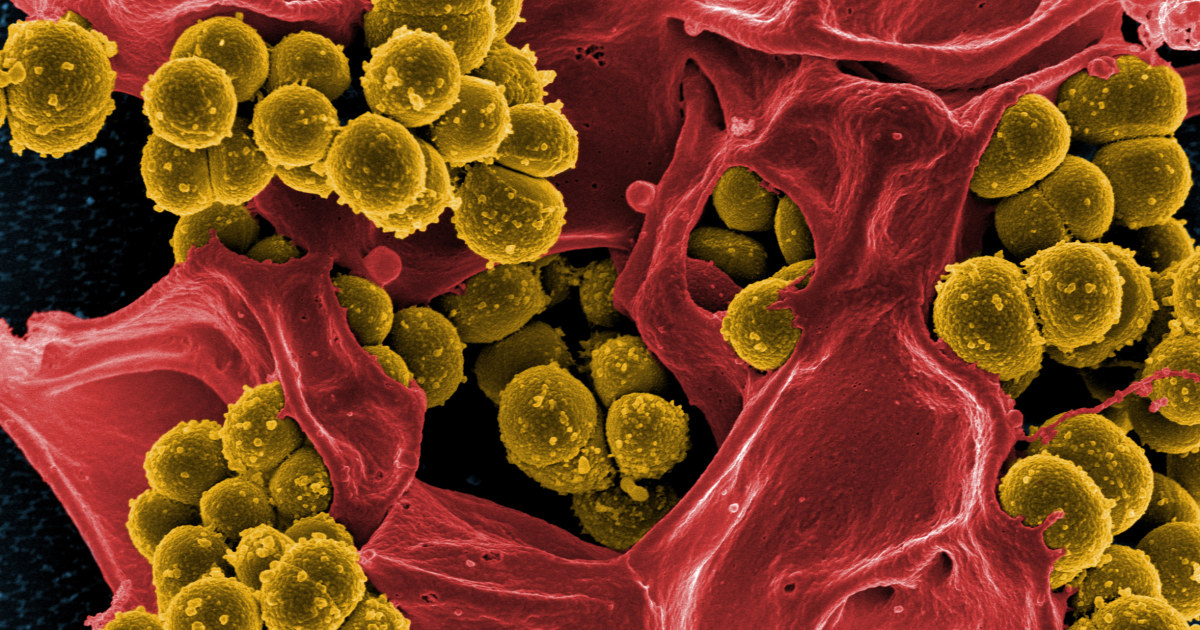Superbug infections spiked in pandemic's 1st wave
 [ad_1]
[ad_1]

The 1st wave of the Covid pandemic produced the great storm for superbugs in the U.S., with cases and deaths from harmful drug-resistant bacterial and fungal infections spiking in hospitals in 2020, a report revealed Tuesday finds.
The spike, the Facilities for Disease Regulate and Prevention report claimed, wiped out the progress manufactured versus the fatal pathogens right before the pandemic.
Total coverage of the Covid-19 pandemic
Drug resistance happens when germs, viruses, fungi or parasites evolve and no longer answer to the therapies that after killed them. The World Health Group has identified as drug-resistant pathogens one of the 10 best community health threats to humanity.
The CDC displays 18 drug-resistant bugs in all 50 states and Puerto Rico. The new report, even so, incorporated details for only 50 % of the superbugs, mainly because of delays in information collection throughout the pandemic.
Even that minimal information is troubling, specialists say.
“The report is about on two levels,” said Dr. Arjun Srinivasan, the CDC’s deputy director for software enhancement, who worked on the report.
The first is the increase in infections that the company does have info on. Equally regarding, he mentioned, are the organisms the CDC was not equipped to gather details on.
Superbugs get back floor
The CDC report discovered that general, superbug infections and deaths in hospitalized patients amplified by 15% from 2019 to 2020, with some worrisome pathogens gaining considerably much more ground.
There was a approximately 80% raise in patients in the medical center who became infected with Acinetobacter, a team of bacteria that can result in blood and urinary tract infections and pneumonia. Infections with another germs of issue, P. aeruginosa, which is resistant to various prescription drugs, rose by extra than 30%. And conditions of carbapenem-resistant Enterobacterales — resistant to the antibiotic carbapenem — increased by 35%.
Experts are specially apprehensive about a 60% increase in infections with Candida auris, a drug-resistant fungus that health officials around the world have been monitoring because 2009.
C. auris, which “spreads like wildfire,” is notably very good at selecting up drug-resistant genes from other pathogens and mutating to resist the several antifungal medications accessible, reported Dr. Luis Ostrosky, the infectious illnesses division main at the McGovern Health-related Faculty in Houston.
The point that distinctive superbugs can pass drug-resistant genes between just one one more highlights the relevance of regaining command in excess of their spread.
“We are not only chatting about 1 solitary organism pandemic,” claimed Dr. Cesar Arias, a co-director of the Middle for Infectious Health conditions Research at the Houston Methodist Study Institute.
Overburdened hospitals
For a long time, hospitals have honed procedures to preserve superbugs from spreading between patients.
“We were being basically looking at reductions in antimicrobial resistance,” Srinivasan reported. “That was anything a great deal of men and women reported would never ever take place.”
A single way to stay clear of drug resistance is “antibiotic stewardship,” or lowering the use of antibiotics when they could not be essential. The far more often antibiotics are prescribed, the extra microorganisms have the chance to come to be resistant to them.
That, in individual, took a hit in the initially wave of the pandemic, when medical doctors did not have treatments for Covid. Antibiotics ended up often the first choice provided to sick clients, even however they do not operate to treat Covid, which is caused by a virus, the report discovered.
The pressure on hospitals may well also have contributed to the unfold of this sort of bacterial infections, Ostrosky explained.
“You have a massive influx of clients who are pretty a great deal acutely ill, substantially more than regular for a hospital, and you overwhelm the normal devices. You have to open new models, and you have to workers these units with men and women who do not normally treatment for such acutely sick people,” he said. “Then you have to protect for the possibility of bacterial bacterial infections early on.”
Srinivasan built it apparent that the report does not mirror a failure of health care workers.
“They did heroic operate to acquire treatment of individuals. What the conclusions signify is a failure of the method. We have to spend in a greater method so that when foreseeable future pandemics come about, we can not only a lot more effectively overcome the pandemic, but the complications we’re viewing, together with antimicrobial resistance,” he claimed.
Ostrosky agreed.
“The Covid pandemic has several far more ramifications than we considered other than Covid an infection alone,” he stated. “I assume this genuinely confirms our worst fears.”
Follow G3 Box News HEALTH on Twitter & Facebook.
[ad_2] https://g3box.org/news/health/superbug-infections-spiked-in-pandemics-1st-wave/?feed_id=2360&_unique_id=62ce9774deac2


0 comments:
Post a Comment